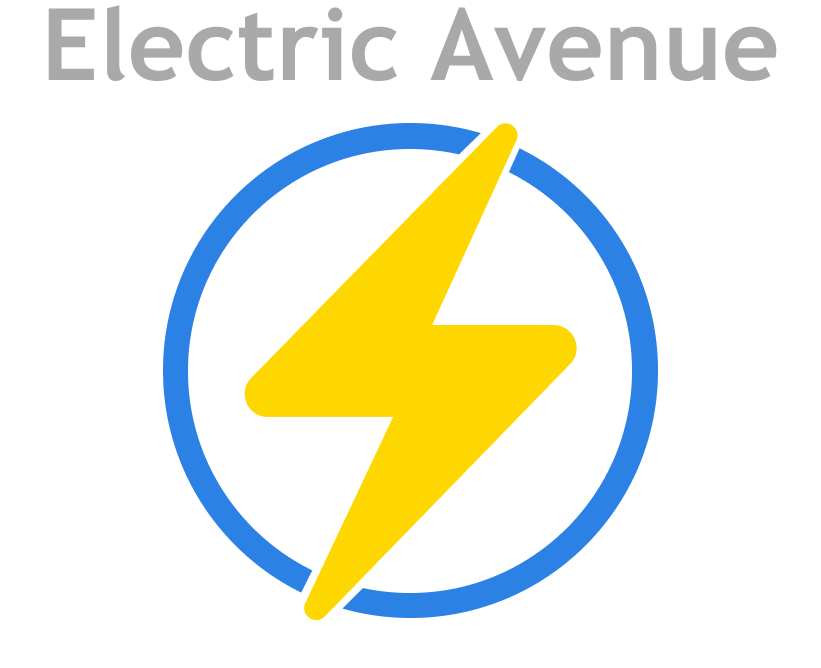In partnership with
Happy Monday. This is Electric Avenue, the newsletter that brings you EV news, insights and analysis. Easy to digest and yummy - like Applesauce. 🍎
Here’s what we have for you today:
1 Video 🎥: The I-90 EV Surge
How virtual credit cards can kill E-Mobility Service Providers ☠️
3 Links 🔗
Meme of the week 🤡
Not subscribed yet? Sign up here 👇🏼
Let's dive in!

1 Video 🎥: The I-90 EV Surge
This week’s video recommendation comes from our friends at Out of Spec Motoring on Youtube. Kyle Conner and his team assembled a total of 9 EV’s and one gas car (for comparison) for the ultimate EV road trip.
The teams are competing on a race (within certain maximum speeds) from Seattle to Boston, with the aim to showcase the range, efficiency and charging attributes of the various cars.
Unfortunately we couldn’t join for the event, but it’s definitely worth a watch. Parts 1-3 of the 4-part series are already live - we’ve linked part two below since part one is just an intro.
P.S: Fun fact we learned is that US gas refueling speed for passenger cars is actually standardized and limited at 10gal/min (~3.8l/min). For a car achieving 30mpg on the highway (30 miles per gallon = ~8l/100km) that’s 300 miles of range per minute refueled! The Lucid Air GT, one of the most efficient and fast-charging EV’s, needs around 22 minutes to recharge an equivalent 300 miles of EPA range.

This week’s newsletter is brought to you by BRANDS IN GREEN.
You build great products
We build strong e-mobility brands.
Are you facing challenges with brand perception, market differentiation, go-to-market strategies, or employer branding? BRANDS IN GREEN is your strategic consultancy specializing in innovative branding solutions. We provide e-mobility companies with a distinctive brand identity that builds trust with customers, partners, and stakeholders. Take the first step towards a stronger brand:

How virtual credit cards can kill Mobility Service Providers ☠️
Last week the Bosch e-Mobility Service Team sent out an e-mail that informs users of its “Charge My EV” charging service in Europe that virtual credit cards are no long accepted as payment method.
But whats the problem with using (virtual) credit cards for a charging service?
Are (virtual) credit cards also a problem when they are used for ad-hoc charging via a credit card terminal at EV charging stations?

E-Mail from the Bosch eMobility Services Team
To start with, let’s have a look at the commonly known process for EV Charging payments and examine the fraud risk within this process:

Once an account has been registered and activated for EV charging, the customer can start a charging session (see step 4 in the graph above). At this point, the MSP can neither be 100% sure that the customer is really the person whose identity they claimed when registering, nor that the payment method provided has sufficient funds for the charging session.
As you can see, it is not a problem of the virtual credit itself, it is just that virtual credit cards can be created much faster and have been used most commonly to commit fraud. Instead, the process design itself is prone to fraud. What happens with most MSPs in the scenario of invalid credit cards is that they start a dunning process that can take 3-6 months.
It is only at a later stage in the dunning process that the customer is blocked from charging. At the end of the day, the MSP is left with an unpaid bill for a single customer, which can amount to thousands of €€€ or $$$ if the fraud is discovered after a few months of the customer continuing to charge to the fraud account.
In addition to credit cards with insufficient funds, there are numerous other fraud risks that are not mitigated by these processes. If you want to learn more about fraud risks, check out the amazing talk from Peter (LMS) and Sebastian (Spirii) at the ICNC24 Masterclass: Rising Fraud in eMobility: 30 Ways to Commit Fraud and How to Get Rich. These risks include:
Copied RFID Cards
Copied MAC-Adress used for Autocharge
Allowing the manual entry of Contract-IDs to start a charging session
Let’s not only talk about problems, but focus on solutions 💡. As you can see, virtual credit cards are not the root cause of the problem. Bosch might be able to reduce the fraud cases by disallowing virtual credit cards, but certainly will need to fix the root cause: - The E2E process starting from registration and finishing with a successfull payment of the invoice.
Genereally, we can distinguish between two types of payment for charging sessions:
Post Payment: Charging session(s) are invoiced at the end of the billing cycle (eg. monthly or after the charging session)
Pre-Payment: Each charging session amount is deducted from a pre-authorised amount on the payment method. An alternative solution is to work with a pre-funded wallet in a charging account (typicially found in the US and UK).
Post-Payment: The key to making post-payment less prone to fraud is to work with a strong customer identification mechanism (known in the financial industry as KYC). This requires the customer to prove their identity to the MSP, which allows the MSP to perform a credit check. While these KYC processes may add complexity and cost to the registration process, the benefits are the added value of a bundled invoice for all monthly charging sessions and the savings in transaction processing costs. This is particularly important for B2B customers such as fleets. And in the case of outstanding invoices, the MSP can more easily dun invoices and carry out negative credit ratings that customers want to avoid. In the B2C space, players such as Amazon offer such payment terms to trusted e-commerce customers with a long transaction history.
Pre-Payment: However, in the B2C segment, a prepaid payment or pre-funded digital wallet is the preferred choice. Few customers will be willing to go through a KYC process when registering for an MSP service. The key to making the process less prone to fraud is to establish a real-time authentication process to initiate a charging session. It is the responsibility of the CPO (and roaming hubs) to allow a charging session to start only after the MSP has authenticated the charging session and performed a pre-authentication on the customer's credit card or digital wallet balance check.
Regardless of the payment method, 2-factor authentication (e.g. the customer must confirm the start of the session over the phone using biometric data or an SMS code) should be used to increase the security of a process and avoid other risisk like copied RFID cards.

As of today, most transaction (90-95% in mainland EU) are done via e-roaming which is called a closed-loop system. An EV charging contract can only be used for paying at a specific subset of charging stations. Open-loop payment systems (credit / debit cards) haven been enforced through the AFIR-regulation and provide an alternative payment method. While we geniuly believe that open-loop payments lower the entry barrier and ease customer transition to EVs, the existing closed loop payment system can be:
more cost efficient compared to transaction fees of open-loop credit card payments
more flexible allowing more data sharing for payment transactions e.g. real-time session and cost updates through a MSP app
more convenient through Plug & Charge (although the EMVCo alliance is working on an open payments solution for that as well - see video)
more attractive through rewards and loyalty points — the ability to accumulate rewards, discounts, and loyalty points for the MSP / CPO the EV drivers charges at most.
That's why we think it's worthwhile for industry players to invest in and mature the existing closed-loop EV roaming payment system.
What do you think about fraud risks in the EV Charging payment processes?
Leave us a comment on the post online. (link)

3 Links 🔗
VW brings V2G to Switzerland: Back in February we covered the initial release of Volkswagen’s Bi-directional charging feature in ⚡How your Volkswagen can power your home 🔋🏠 . At the time only the Hager/E3DC charging station was compatible with VW’s proprietary protocol for V2G. Now the company has announced that Swiss-based Sun2Wheel has received permission to operate with the VW V2G technology as well. The company is planning to launch a 22kW DC wallbox in June 2025 for this purpose. The charger is made by EVTEC. (Link)
FlexECharge wants to be your broker: FLEXECHARGE is a startup that’s know for its load-management offerings for charging station operators (see ⚡ How FLEXeCharge wants to make charging more profitable - E-Mobility Startup Profile ). Now, the company is launching a dedicated OCPP broker designed to simplify and standardise connectivity for CPOs, enabling quick and seamless integration with 3rd party software like Evercharge’s maintenance cloud. (Link)
Ford CEO checks out Xiaomi EV: In an interview with Everything Electric, Ford CEO Jim Farley disclosed that he’s been driving the Xiaomi SU7 EV as a benchmarking vehicle for the last 6 months and quote “doesn’t wanna give it up”. Check out the section from the interview below (ca at 22:27min), and see our post for more details on the SU7: ⚡Is the Xiaomi EV a Smartphone on Wheels? 📲
Most-clicked link last week: Was Michael Clarke’s master thesis on PV-optimized charging strategies (Link - in German only).

Meme of the Week 🤡

🤣
Reader Review of the Week
Selected ⚡️⚡️⚡️⚡️⚡️ Freakin’ awesome on ⚡An inconvenient truth: Why every EV has at least 10% charging losses and wrote:
“The in-depth analysis by Michael was fantastic, and the kind of thing that insiders of the EV charging industry out to know. Thanks for educating us. ”
That's a wrap for this week! Let us know how you feel and leave some feedback (We read every single one of these 🙂 ):
What do you think of today´s edition?
Someone forwarded this to you? Subscribe now - it's free!
DISCLAIMER: None of this is financial or tax advice. This newsletter is strictly educational and is not investment advice or a solicitation to buy or sell any assets or to make any financial decisions. The Electric Avenue team may hold investments in or may otherwise be affiliated with the companies discussed.




